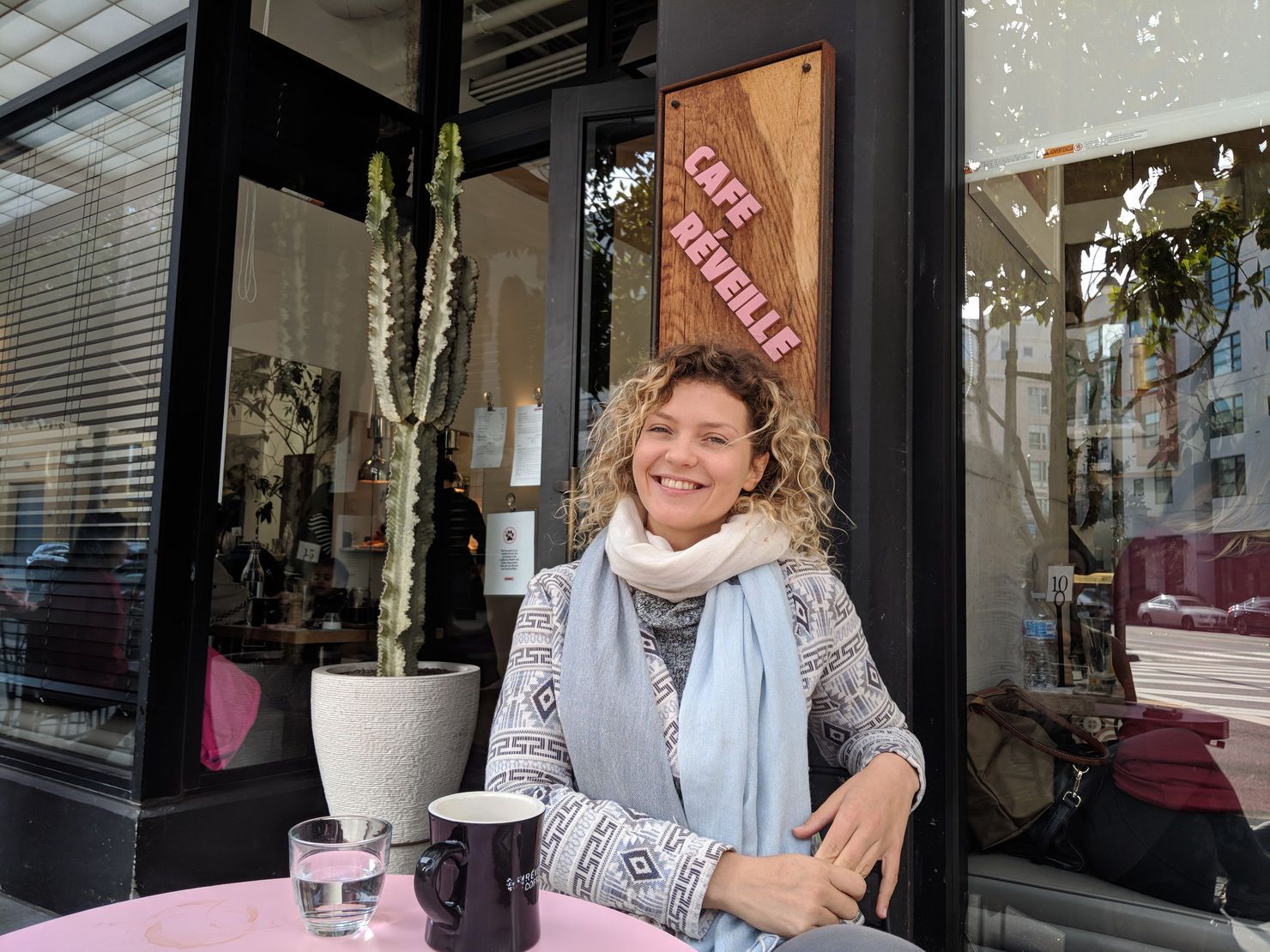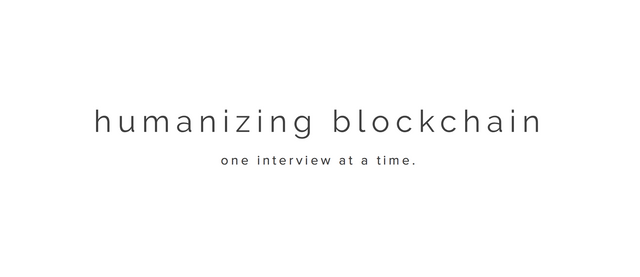Blockchain Lessons from Ukraine

Anastasia Green describes herself as a blockchain maker, tech entrepreneur, and chatbot diva. She is the co-founder and CEO of Aura, a decentralized professional network for the blockchain industry. We spoke to her about her personal journey and where she sees the technology evolving in the future.
“In 2011, I had a friend in Ukraine who was working on this weird new thing called Bitcoin—but nobody believed it was something that would work. One day, he gathered us all on a couch in his apartment and explained why this technology was so important.”
Six years later, you can find Anastasia hosting blockchain hackathons and hanging out with DJs who go by the name of “ETH Ledger”. To understand her journey, we go back to the place where it all started: Ukraine.
Will Kiev become the next Silicon Valley?
“In Ukraine, the average person, if not working in tech, earns about $250 or $300 a month. There are millions of professionals out there who have a hunger to grow, yet there are not enough opportunities for people inside the country. Due to the high level of corruption, there is also a complete lack of transparency and trust in most business sectors. We've grown up knowing that we can’t rely on the system to take care of us. So we do it ourselves. Blockchain technology and cryptocurrencies represent more than just an opportunity to make
money—it’s a way to finally break the system.”
The IT sector in Ukraine has grown more than 50 times in the last five years, from 0.06% of
the to 3.3% of the GDP. Today, it ranks third in a list of top 50 countries with the highest
number of certified IT professionals, behind the U.S. and India.
“More and more people in the tech industry in my home country now want to be paid in
cryptocurrencies,” she says.
In Ukraine, blockchain is far more than an asset with which to speculate —already it is
transforming how people transact. From sending remittances to family abroad without the pain of banking fees, to increasing transparency in agricultural land ownership, to the Ukrainian justice ministry now using blockchain to digitally auction seized assets, this technology is changing familiar structures in tangible ways. Ukraine stands a good chance of becoming the ideological center of the blockchain and crypto community.
Anastasia says, “One of the reasons that places like Silicon Valley have been so successful is that, coupled with the booming technical excellence that drives innovation, there is an emphasis on soft skills. People here know how to sell themselves and think outside the box. Public speaking, sociology, psychology, marketing—these are all fields that even people in the tech industry value. In Ukraine, on the other hand, you see the opposite picture. Our education system is still stuck in the past, where kids were churned out with the technical prowess to build rockets. The result is a generation of professionals with fantastic technical skills, but very little ability to sell themselves.”
On Aura
“This is where Aura comes in. The tech industry all over the world is currently facing a massive shortage of human capital. Sourcing high-quality talent is a challenge, and 48% of US companies now hire remotely, usually on a project-to-project basis. The first hurdle is to find the right talent. The second issue is trust, not to mention the bureaucracy of hiring across borders. Aura streamlines this process and aims to match tech employees with opportunities that will lead to their professional growth.”
In your line of work, how do you measure impact?
“This is something I really struggle with. How can I create an impact with the work I do, beyond just generating random numbers on a hash?” she laughs. “Blockchain technology creates its own ecosystem. But it also has a lot of emptiness to it. I mean, a lot of it seems like making money for the sake of money.
“Elon Musk sent his first rocket into space with just nine million dollars. Some initial coin
offerings (ICOs) are raising $200 million in just 60 minutes. We need to stop focusing on the
money and start looking at the technology. What we need now are better-quality startups that
are actually based on something real, and are solving existing problems. We need sustainable business models, and we need to encourage more social entrepreneurs to use this space so that we’re not just betting on the ability to make money, but also investing in the potential for tangible change.”
Anastasia believes that the biggest adoption of blockchain technology will not be in the
developed world, but in places where trust in public institutions has long been an issue.
“Imagine if we could put the voting system on the blockchain, ensuring that people’s decisions are not manipulated or fabricated. This technology has the power to transform how we govern. We could even go a step further, and decentralize leadership structures, choosing CEOs and congressmen not because they have been trained to be in positions of power, but because the blockchain backs them up with a record of actual experience in the area they want to lead. Blockchain is more than just a technology - it’s an ideology that is trying to upgrade an outdated way of life.”
What of regulations?
Anastasia laughs, “I’m saying this as a Ukrainian; regulations are suppressive.”
Last year, China and South Korea banned ICOs. Digital coins and tokens are now subject to
federal securities laws in the US, making it more difficult for US companies to hold an ICO. In
August 2017, the cryptocurrency exchange platform Bitfinex announced that it would no longer serve US customers due to the new regulations.
The discrepancy between exorbitant liquid wealth and actual value is still cause for skepticism
amongst some, who see no long-term sustainability in the industry. The most vehement critics of the “Bitcoin bubble” often go back to the simple question of, “Is any of this actually real?”
Anastasia says, “Perhaps in a couple of years, I will read this article and by then, the crypto hype will be over. But what I think we need to understand is that the dollar is not backed by anything other than the faith of people and institutions all over the world. What pulls the price of cryptocurrencies up and down is not just the trading—it’s the need for the technology and the performance of companies. Unlike fiat trading, which relies largely on economics and monetary policy, cryptocurrencies are driven by the development of new applications, and the rate of innovation in the industry. Even if Bitcoin were to fail, something else would take its place. Blockchain technology isn’t a passing trend, it’s a solution that many people recognize we need. More than that, its possibilities present an ideological shift—a ‘belief upgrade’, if you will.”
Who inspires you?
“Simon Sinek. He emphasizes happiness in the workplace, and reminds us that impact and
values are the true measures of success. Richard Branson. Who doesn’t love him?” she laughs. “And lastly, the people around me. I have so much respect for people who simply work hard and do what they do best.”
Anastasia is one of those people who seem to have it all put together. Parallel to her tech
career, she is also the CEO and co-founder of Aware Mind Inc., a company that offers personal meditation education. With all of last year’s hype around cryptocurrencies, it’s people like her who remind us that the success of blockchain technology lies not in the price of the next best altcoin, but in tangible impact. For that, we need to evaluate the gap, reorient our motives, and decide what we want out future to look like. Technology exists to improve our lives, not the other way round.

On the Block is a media platform that tells the stories of movers and shakers in the blockchain space. No hype. No speculation. No evangelizing. We interview people who are directly involved in the industry to hear their insights on the challenges, triumphs and critical questions that are shaping blockchain technology. On the Block was inspired by the gap in media coverage of blockchain - with most platforms either focusing entirely on technical aspects or covering short, on-demand news such as price. For more information, visit https://www.ontheblock.media.